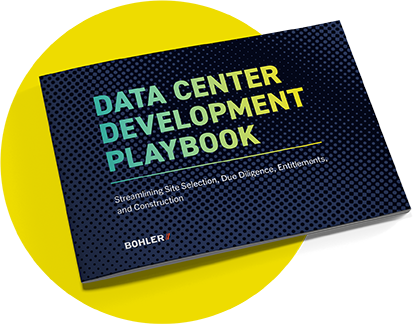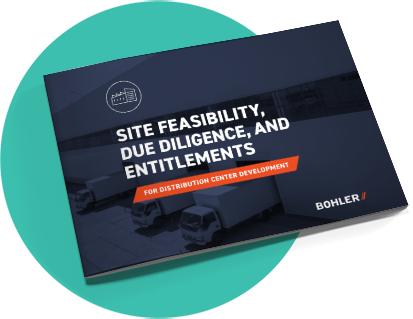Stay in the Know
Get our insights and latest news straight to your inbox.
Today’s real estate development market is evolving fast, and industry professionals may be challenged to keep up. They are facing increasingly long entitlements timelines and permitting challenges that can easily interrupt or sideline their projects.
In a recent interview with REBusinessOnline, Bohler professionals from across the firm’s footprint discussed how development and design teams can minimize delays and control budgets – the two most important factors to moving land development projects forward.
Looping in your design team ahead of due diligence kick-off allows them to help you develop a systematic approach to the research process. Design teams can help developers determine how to allocate budget, establish realistic timelines, and identify important due diligence milestones – key factors that can impact your deal structure.

“Success boils down to managing a client’s time, money, and risk,” explains Raleigh, NC Principal Charlie Yowell. “It’s so important to establish priorities early on. This can help design consultants to identify, mitigate, and manage any challenges – as well as shape the timeline accordingly.”
“In South Florida, there’s often a need to involve site civil engineers at the early stages of every project – even when the client is still negotiating deals to buy land,” says Miami, FL Associate and Branch Manager Taylor Parker. “Ordering preliminary reports and investigations ahead of time can reduce ‘down time’ in the rest of the process. It’s a relatively small cost up front that could save two months.”
“An understanding of what New York developers are likely to encounter in the next year is pushing some to drastically reschedule their projects to avoid local code implementation deadlines that will increase costs and requirements,” says Melville, NY Associate Kristin DeLuca. “We work with our clients to build enough time into agreements with tenants and banks to ensure they can abide by their commitments and avoid additional costs down the line.”
“Whenever possible, we run zoning and construction documents plan sets concurrently in Maryland,” explains Towson, MD Project Manager Matt Polhaus. “Processing these reviews parallel with each other shortens the overall project schedule and can help the permitting timeline as well.”
“If starting construction is a client’s top priority, for example, we recommend taking specific steps such as obtaining an early clearing or mass grading permit to allow the contractor to move forward faster,” Charlie says. “As that work is being done, we finalize the rest of the permitting and allow the developer to deliver on or ahead of schedule.”
“I like to run permits concurrently in the site planning process,” Taylor agrees. “We submit all civil construction permits, such as driveway or utility connections and drainage permits, at the same time rather than wait to receive site plan approval.”
“It’s critical to understand the local factors at play that will influence a project’s chance of success,” says Kristin. “Consider the community’s needs and desires and be flexible.”
“Our recommendation is to meet with local stakeholders and ask for feedback,” Kristin continues. “Start with a simple site plan, rather than developing a whole package. Some developers might think they’re slowing down the process by taking it in smaller steps, but it really helps to move much more smoothly and save time overall.”
“In many jurisdictions, an influx of unseasoned staff can make for a painfully slow experience for developers,” notes Matt. “We take the initiative to educate our reviewers through the process to help expedite reviews and secure approvals.”
“Meeting with officials either in person or virtually allows developers and design consultants to discuss project considerations quickly and offers an opportunity to explain design rationale. This approach tends to reduce comment, and any time we can eliminate one or two rounds of review comments, we’ve shaved a couple of months off the project timeline,” Matt says.
While expanding timelines may be inevitable, engaging a land development consultant like Bohler early in the site planning process can result in a more comprehensive strategy to keep the project moving forward – including more accurate cost and timeline estimates and better solutions to address potential schedule slowdowns.
Read more on REBusinessOnline here.

Get our insights and latest news straight to your inbox.